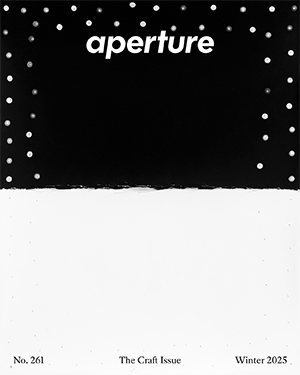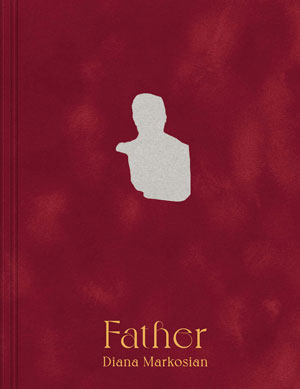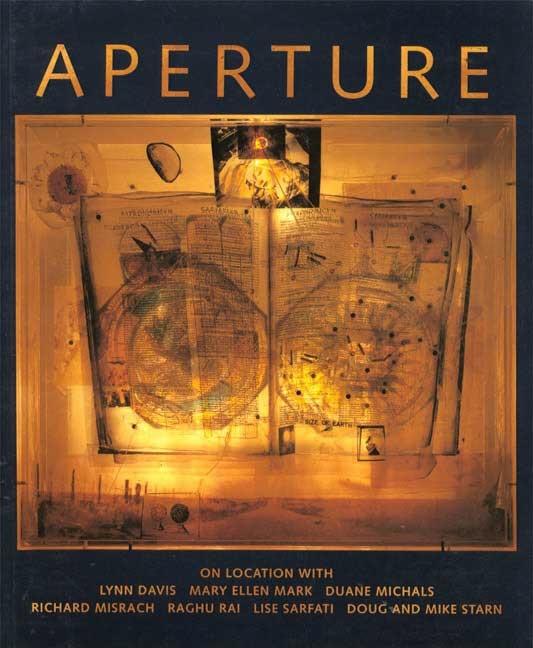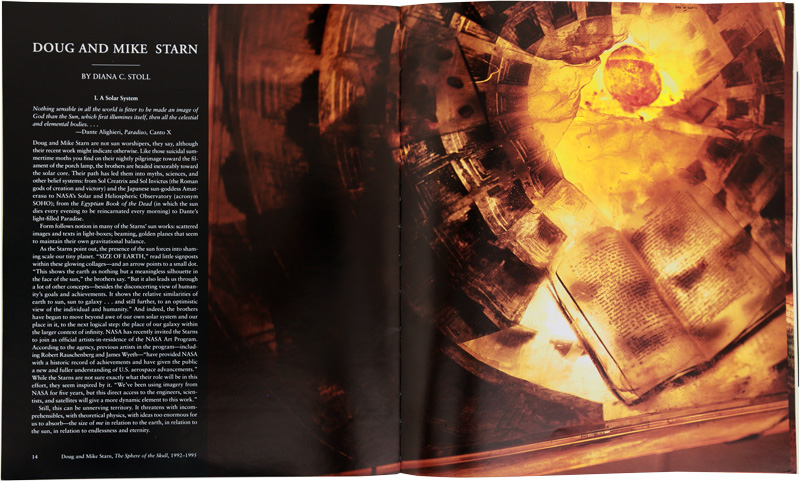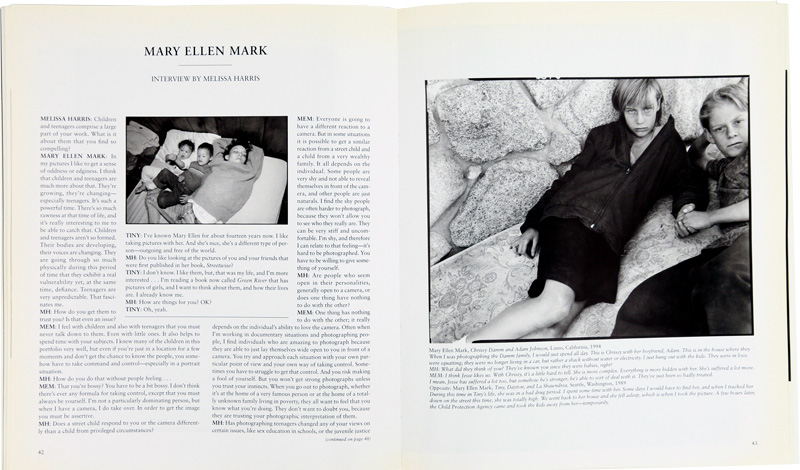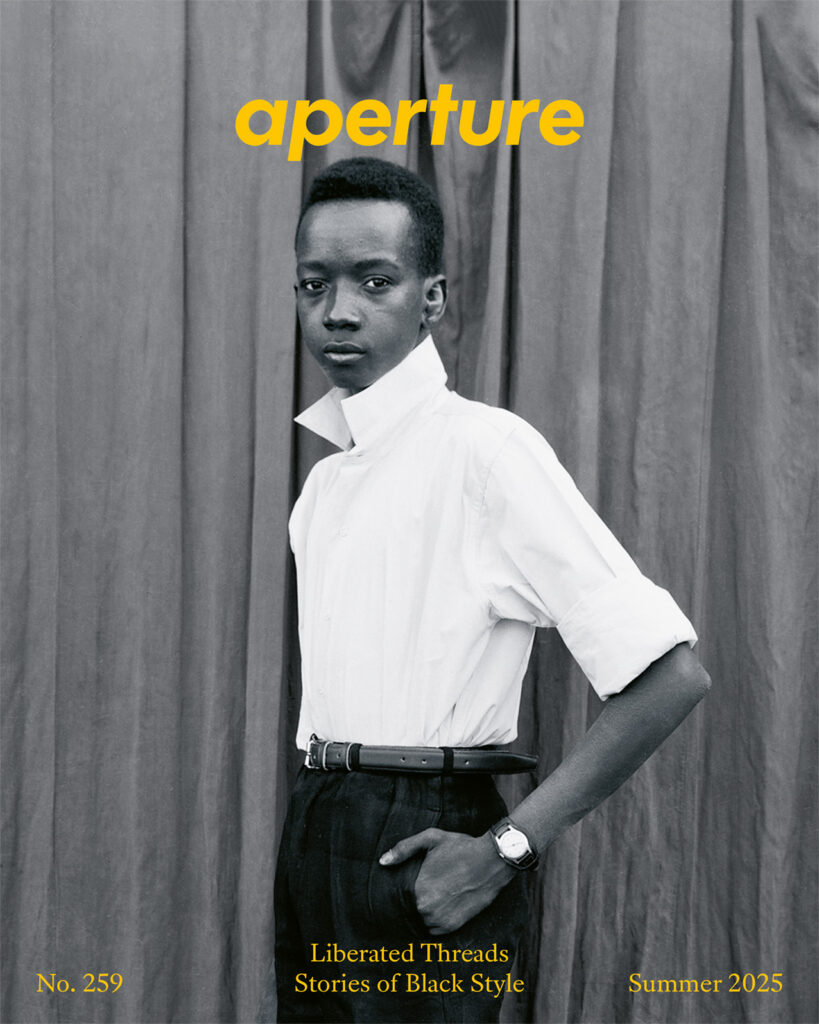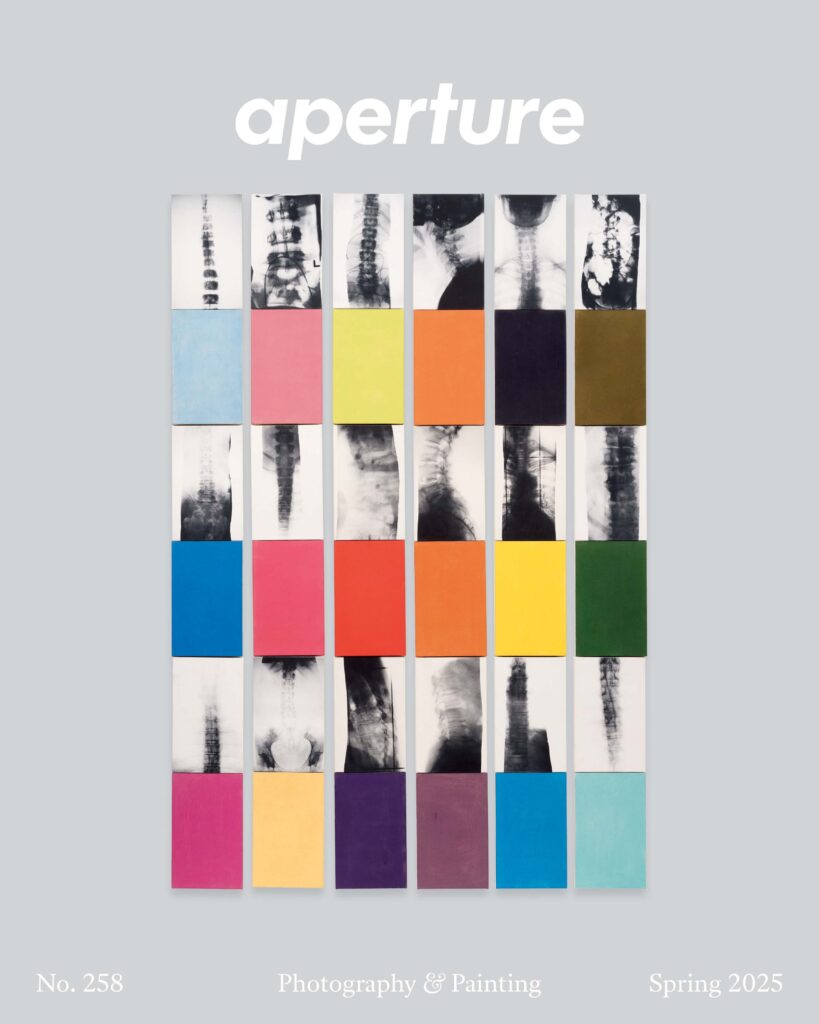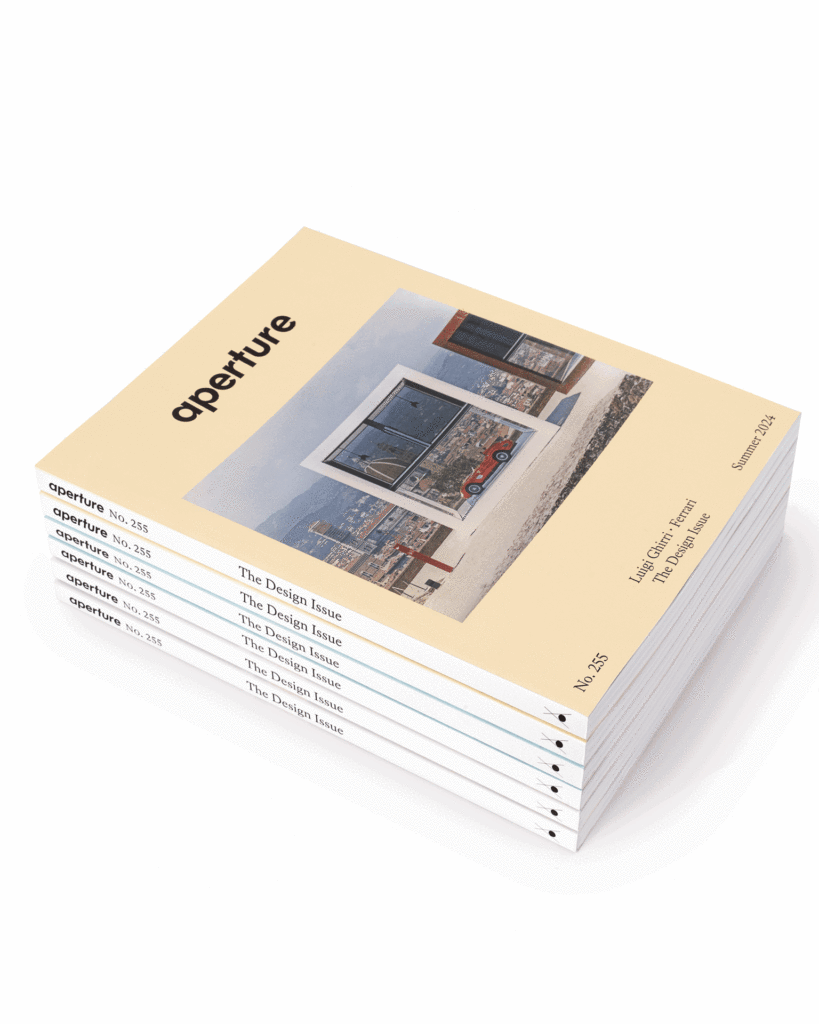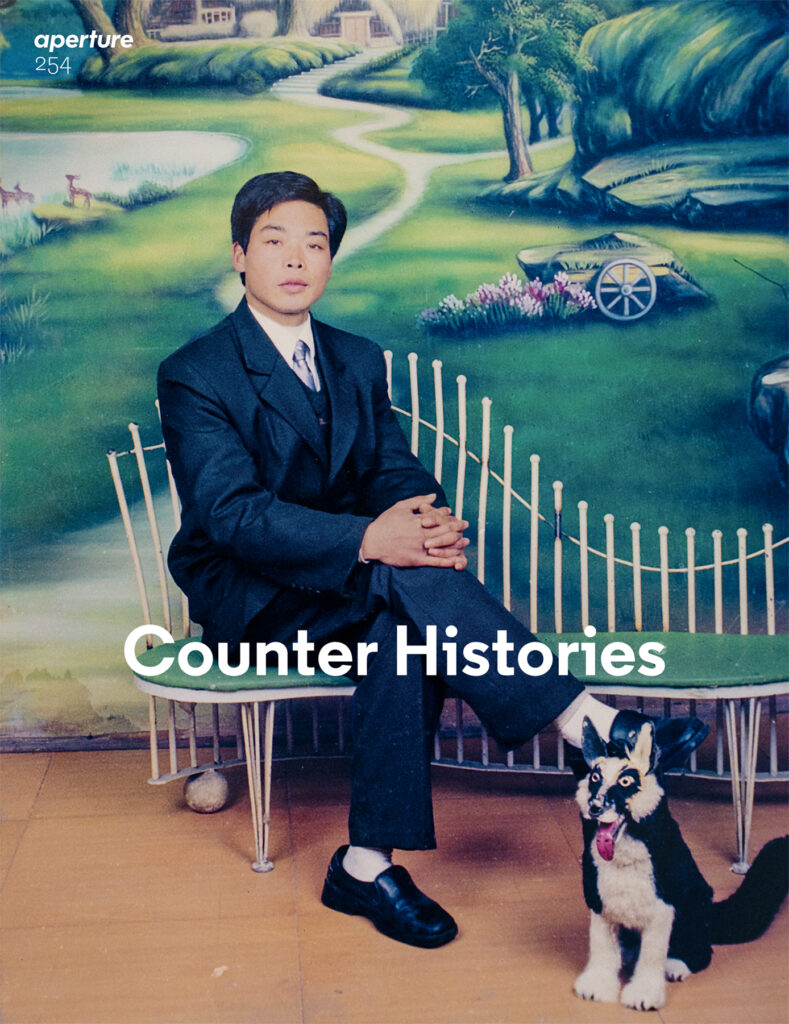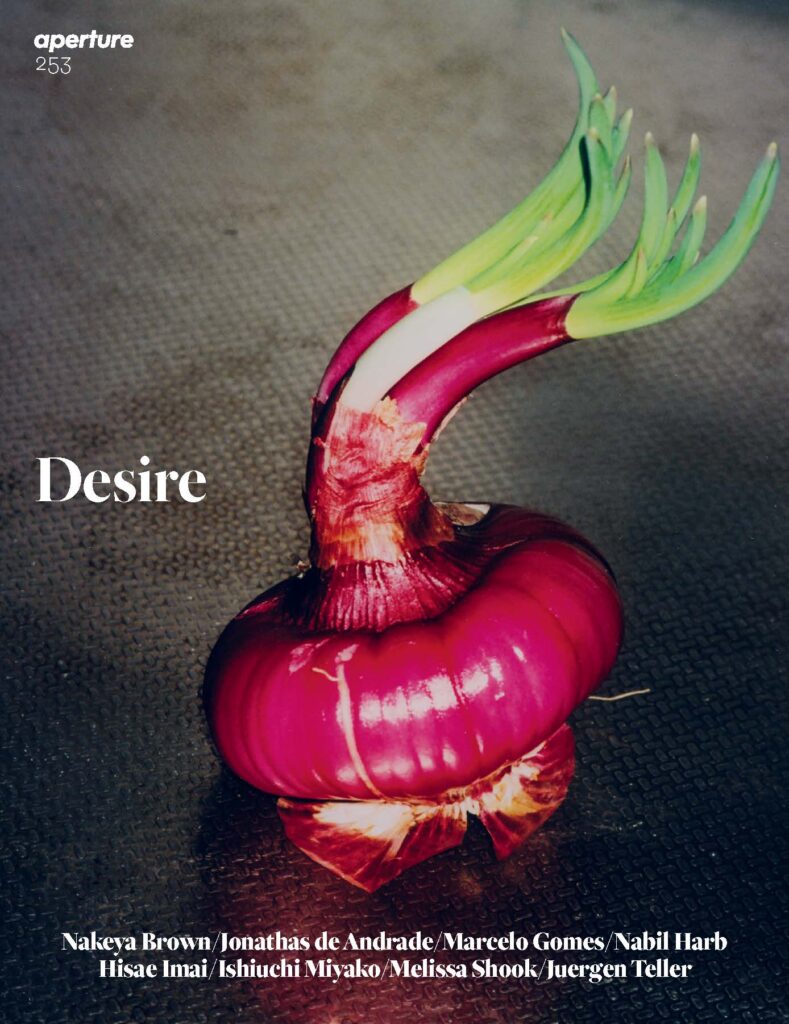Aperture 146 - Winter 1997
On Location III
Portfolios and Essays on Lynn Davis, Mary Ellen Mark, Duane Michals, Richard Misrach, Raghu Rai, Lise Sarfati, Doug and Mike Starn, William Morris, and William S. Burroughs.
Receive immediate and unlimited access to this full issue with an Aperture Archive account. Get started for free.
Featured Content
Issue Details
The work presented in Aperture’s third “On Location” issue reveals that we live in a constant state of transformation, that the naming of things does not make them any more tangible, that the “decisive moment” is over before it begins, and that the “fixative” nature of photography makes it marvelously complicit in its paradoxical relationship with the world.
Studio Visits with Lynn Davis, Doug and Mike Starn, Raghu Rai, Lise Sarfati, Mary Ellen Mark, Duane Michals, and Richard Misrach.
People and Ideas
“Hooded Camera” by Victor Anant
“William Morris: The Earthly Paradox” by Mark Haworth-Booth
“William S. Burroughs at the Los Angeles County Museum of Art: Pariah or Pope” by Frederick Kaufman
Format: Paperback / softback
Number of pages: 80
Number of images: 0
Publication date: 1997-03-30
Measurements: 9.54 x 11.38 x 0.28 inches
ISBN: 9780893816971
Table Of Contents
On Location, Studio Visits With:
Lynn Davis
Interview by Melissa Harris
Doug and Mike Starn
by Diana C. Stoll
Raghu Rai
by Mukul Kesavan
Lise Sarfati
Mary Ellen Mark
Interview by Melissa Harris
Duane Michals
by Michael Sand
Richard Misrach
by Myriam Weisang Misrach
Hooded Camera
by Victor Anant
William Morris: The Earthly Paradox
by Mark Haworth-Booth
William S. Burroughs at the Los Angeles County Museum of Art: Pariah or Pope
by Frederick Kaufman
The work presented in Aperture’s third “On Location” issue reveals that we live in a constant state of transformation, that the naming of things does not make them any more tangible, that the “decisive moment” is over before it begins, and that the “fixative” nature of photography makes it marvelously complicit in its paradoxical relationship with the work.
